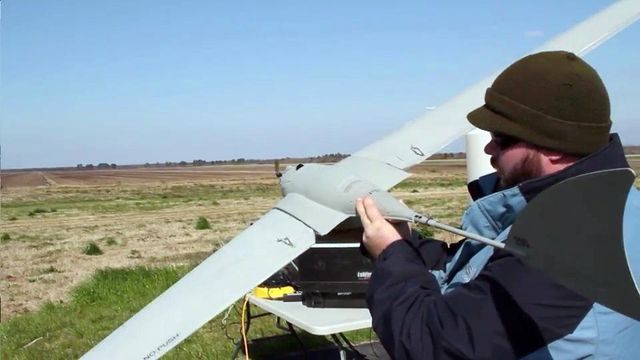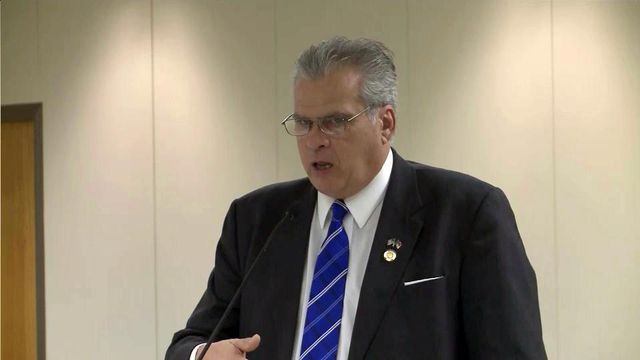Lawmakers OK proposed drone regulations
A House panel on Wednesday adopted draft legislation to regulate the government and commercial use of drone aircraft in North Carolina.
Posted — UpdatedThe proposal likely will be heard by at least one committee when the General Assembly reconvenes next month, but any state regulations also must comply with drone rules the Federal Aviation Administration is expected to roll out by the end of the year.
Lawmakers last year passed a two-year moratorium on use of drones by state or local governments so they could get a handle on security and privacy concerns. Privacy advocates say drones open the door to unconstitutional surveillance, but backers of unmanned aircraft say they can be used to survey crop damage, map flood plains and assist in search and rescue missions.
"We're trying to address it to the point so it allows privacy for an individual and allows the market to develop and to grow," said Rep. John Torbett, R-Gaston, co-chairman of the House Committee on Unmanned Aircraft Systems.
Sarah Preston, state director of the American Civil Liberties Union, said that's a fine line.
"We're trying to balance the protection of privacy and understanding that people are really concerned and protective of their privacy, particularly from government surveillance, but also that this is a technology like any other that could really benefit people," Preston said.
Proponents say North Carolina could become a hub for the unmanned aircraft industry if the state adopts regulations early and doesn't choke off growth with too many rules.
"I want to make sure that everybody can get out there that can use them and then use them appropriately," said Kyle Snyder, who heads the Next Generation Air Transportation Center at North Carolina State University.
Snyder said the drone industry is booming, and it could bring hundreds of jobs for North Carolina if the state allows them to fly.
The recommendations the committee forwarded to the legislature would prohibit anyone from using a drone to spy on an individual, a private home or farm without written consent. News media would be allowed to collect footage with a camera attached to an unmanned aircraft without having to obtain consent.
Law enforcement could use drones for surveillance under the proposal, and officers wouldn't need a warrant if they were trying to foil a terrorist attack or feared imminent danger to life or a suspect's escape.
Some lawmakers expressed concern about a provision that would allow law enforcement to photograph "gatherings of the public on public or private land," but Rep. John Faircloth, R-Guilford, said there was no reason to restrict law enforcement from a public gathering.
"We're getting into some legal issues that need a whole lot more study before we try to pin them down in statutory law," Faircloth said.
Rep. Carl Ford, R-Rowan, asked if local jurisdictions could adopt even more stringent requirements, saying he's heard from people who fear numerous drones buzzing high school football games.
“There’s a lot of unanswered questions on the safety side," Ford said.
The state Division of Aviation would be responsible for developing a skills test and licensing requirements for anyone seeking to operate a drone for commercial purposes. The moratorium on government use of drones would expire once the licensing system is in place and the FAA has approved unmanned aircraft operations.
The proposal also would make it a felony for anyone to weaponize a drone or if a drone interferes with the operation of a manned aircraft. Using a drone while hunting or fishing would be a misdemeanor.
The committee approved an amendment that cuts the penalty for a first offense of operating an unmanned aircraft without a license from a misdemeanor to a warning. Rep. Tim Moffitt, R-Buncombe, said he feared that hobbyists who end up doing some business would be cited unnecessarily.
• Credits
Copyright 2024 by Capitol Broadcasting Company. All rights reserved. This material may not be published, broadcast, rewritten or redistributed.






